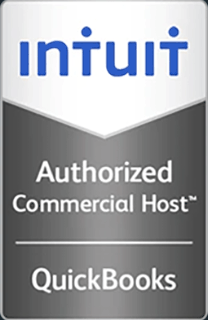How to Simplify Data Storage, Remote Access, and Security for Your Team
The second in a five-part series on “How to Clean Up Your IT Mess, this blog post focuses on the data dilemma facing many Small and Medium Sized Businesses (SMBs): How to store and protect your ever-growing volumes of data to ensure optimal productivity and security.
SMBs are drowning in data
In today’s digital world, data is growing exponentially. According to Statistica, 97 zettabytes of data will be created in 2022 — up from 79 zettabytes in 2021 and 64.2 zettabytes in 2020.[1] Given that a zettabyte is a trillion gigabytes, that’s a whole lot of data.
SMBs generate their fair share of data — some of which is sensitive and much of which is critical for serving clients, maintaining compliance, and informing future business strategies. Therefore, simplifying how you store and protect your data can have a significant impact on your organization’s productivity, security, and reputation.
Do any of these scenarios sound familiar?
- Users are saving data to multiple locations
- You’re not sure that data in all those locations is as secure as it could be
- You’re taking up valuable storage resources with old, stale data
- You’re not sure that all your data is backed up regularly
- Your users cannot share files easily, especially when working remotely
If any of these statements ring true, then you might want to rethink your approach to data storage, protection, and access to improve business performance and safeguard your organization.
Address data protection concerns
Think cybercriminals only go after the big players? Think again. According to Accenture, 43% percent of cyberattacks target small businesses, but only 14% of those businesses are prepared to defend themselves.[2] Even more alarming, 60% of business go out of business within six months falling victim to an attack.[3]
Considering these trends, it’s not surprising that 80% of SMBs identify cybersecurity as one of their top priorities.[4] The problem is that it’s difficult to keep up with the ever-evolving cybersecurity landscape, especially for SMBs with limited IT resources. That’s why many SMBs are turning to cloud providers to host their applications and data in a virtualization environment built from the ground up for absolute data protection. SMBs should look for a cloud environment equipped with firewalls, intrusion detection and prevention systems, and regular software patches and updates — all running in a physically secure data center. Beyond all these purpose-built protections, it’s simply easier to secure data in one centralized cloud environment than it is to secure data housed in multiple locations — from end-users’ laptops to in-house servers to file storage services.
Backups are another important consideration in the event your SMB does fall victim to a cyberattack. The safest approach is to back up your data as application-consistent snapshots, read-only copies of data that can be stored using minimal disk space and are immediately available for restoration.
Make it easy to access data from anywhere
With the widespread adoption of remote work, your employees may be saving time previously spent on their commute, but are they less efficient due to data access issues? Without the proper IT setup, many SMB end-users must log into multiple systems at the beginning of each day to access key business applications and get their work done. Plus, they may spend too much time looking for files in multiple locations throughout the workday — further hampering productivity.
You can address this productivity drain by using a single cloud provider to host your applications and data in a central virtualized environment. This approach gives your employees seamless, secure access to their applications and data — on one screen and with one login — from any device or location. End-users enjoy an identical user experience whether they’re working in the office, at home, or elsewhere. Plus, they can easily access and share files from one centralized location for enhanced efficiency and collaboration.
Archive data for operational efficiency and cost savings
For many SMBs, archiving data simply isn’t a top priority with all the other things on their plate. Data archiving moves infrequently accessed data to low-cost storage repositories where it is retained for regulatory compliance purposes or future reference and analysis.
Archiving data not only saves on storage costs, but it also delivers other important benefits. It improves application performance by speeding up queries on active data. It makes backup and recovery faster and simpler by reducing the volume of data. It even reduces your overall attack surface. For SMBs, all this adds up to greater efficiency, better security, and long-term savings that can be reinvested in the business.
Clean up your data mess once and for all
Don’t’ let data difficulties hold back your business. IV understands the IT challenges facing today’s SMBs and provides cloud solutions to meet their unique data, application, and user requirements. We build tailor-made cloud hosting solutions, including virtual dedicated file servers and remote desktop servers, to meet your specific data needs — efficiently and cost-effectively. Plus, our multi-layered Enterprise Virtualization Environment™ (E.V.E.) provides 100% uptime and absolute data protection you can count on. Contact us today to learn how IV solutions can improve cybersecurity for your business.
- [1]Statistica, Amount of Data Created, Consumed, and Stored 2010-2025, May 23, 2022, found at https://www.statista.com/statistics/871513/worldwide-data-created/.
- [2]Scott Steinberg, Cyberattacks Now Cost Companies $200,000 on Average, Putting Many Out of Business, CNBC (October 13, 2019), found at https://www.cnbc.com/2019/10/13/cyberattacks-cost-small-companies-200k-putting-many-out-of-business.html.
- [3]Joe Galvin, 60 Percent of Small businesses Fold Within 6 Months of a Cyber Attack: Here’s How to Protect Yourself, (May 7, 2018), found at https://www.inc.com/joe-galvin/60-percent-of-small-businesses-fold-within-6-months-of-a-cyber-attack-heres-how-to-protect-yourself.html.
- [4]Security Magazine, Eighty Percent of SMBs Rant IT Security as Top Business Priority, August 27, 2019, found at https://www.securitymagazine.com/articles/90798-eighty-percent-of-smbs-rank-it-security-as-top-business-priority.





